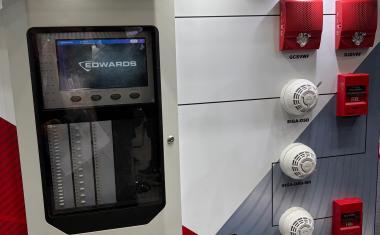Echo Celebrates 200k Milestone
Echo has announced it is now supporting almost 200,000 Intruder and Hold-Up Alarm systems on police response with URNs, or Unique Reference Numbers.
Launched last year, following extensive development, Echo provides virtually instant alarm signaling to police control rooms from approved Alarm Receiving Centres (ARCs) who remotely monitor premises protected by Intruder and Hold-Up alarm systems. Transforming the speed with which police can respond to confirmed alarm signals by replacing the legacy of manual call handling, Echo is automating police alarm response to homeowners, businesses and government properties across the Metropolitan and Essex police areas, soon to be followed by Avon and Somerset Police and other forces getting Echo-connected.
The vast majority of the signals from all Intruder and Hold-Up alarm systems registered with the Metropolitan Police are now being transmitted via Echo's automated signaling service. The police estimate Echo increases the speed of ‘blue light’ response to emergencies by up to four minutes - helping them apprehend offenders and providing greater assurance to home and property owners - potentially saving more lives in critical emergencies where every second counts.
This follows the issuing of notice last year by the Metropolitan and Essex Police requiring ARCs registered with their Police Forces to transmit Intruder and Hold-Up Alarm Systems’ activation calls via Echo.
“The Echo signaling service is without doubt the most significant technological advancement in the handling of Intruder and Hold-Up alarm signals between ARCs and police responder desks," says David Mair, Manager of the Security Systems Unit, Metropolitan Police Service."Having become Echo-connected ourselves last year, we are already experiencing the benefits of utilizing this technology; not least, it enables us to effect a quicker and more efficient police response to premises in an emergency situation. As we work with the remainder of ARCs to conclude the connection process, we envisage all ARCs registered with us will be Echo-connected in the near future.”
Stuart Bowman, Security Systems Manager, Essex Police said: “Having been at the fore throughout the development of this ground-breaking service we welcome the step change this milestone represents in improving police response times and the additional reassurance provided to the wider public who rely upon this technology. Congratulations are due to the industry and all of those ARCs who have become Echo-connected to enable a secure and more efficient method supporting the deployment of police responders to incidents. Our work to facilitate ARCs registered with Essex Police to become Echo-connected will continue to be a key focus until all are on-board.”
ARCs registered with the Metropolitan Police Service, Essex Police and Avon and Somerset Police - the latter planning to be Echo-connected from April - yet to transmit alarm signals via Echo should contact their alarm monitoring software provider and Echo for assistance in getting connected.
Established in 2017, Echo, short for Electronic Call Handling Operations, is a non-profit industry-backed organization delivering automated alarm signaling between the Alarms industry and the Police.The BSIA, FIA, ECA and NSI have played key roles in developing and implementing the initiative.
















